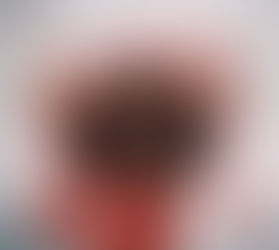Birth Beyond Medicalization
- Sister MorningStar
- Oct 24, 2022
- 6 min read
Updated: Nov 3, 2022
These articles were first published in Midwifery Today.
Will there be birth beyond medicalization? If so, for whom
Anna Marie was afraid. She had a health condition and was pregnant for the first time in her 30s. Medicine saved her. Birth by knife and she had her wanted baby in her arms to love and to cherish for a lifetime. Less than a decade later, her abdomen is filled with adhesions that can only be cut to make more adhesions while she prays for a long life to share with her cherished family.
Leana was afraid. Her homebirth dream was shattered as her waters broke and her baby presented with an elbow. Large, at term, transverse, and stuck. Medicine saved her and her baby. There was no way around it.
Carol was afraid. At home, her newborn in her arms, she was alone with her family. The bleeding wouldn’t stop. They tried everything. She had become weak. In a panic, someone called an ambulance. Medicine saved her. Into the operating room she went for an emergency removal of placenta accreta. Twice, for the same reason, medicine saved Carol. Carol found an old-time midwife and birthed her last baby and her placenta at home. Carol celebrated, reclaiming her body and her self-confidence. Many in medicine said she was lucky.
Mary struggled with a three-day home labor that scared her and her birth companions. In a panic, they transferred. Medicine saved her from her pain. Heart tones became concerning. Baby was born by knife and lived the first days in NICU with antibiotics. Medicine saved her baby. Mary lives with shame and blame. She meets with other Marys who live with shame and blame.
Clare was young. She labored alone. Her baby died. Her family and friends remind her every day, “Medicine could have saved your baby.”
Katie’s baby was stillborn at 38 weeks. Medicine could have saved her baby.
Ellie’s baby was stillborn at 42 weeks. Medicine could have saved her baby.
Ellen died in childbirth at home. Medicine could have saved her life.
Frida knows her family story. Great-grandma died at home in childbirth.
Helen knows her family story. All her womenfolk hemorrhage after childbirth.
Talia knows her family story. All the babies in her family are born premature.
Fear walks across the threshold into a medicine that saves. So the story grows.
Across a great divide, other stories are being written. The stories are scary. Or maybe powerful. But it depends on who is telling the story.
Sarah birthed under the moonlight in a water trough after a previous cesarean.
Tabitha birthed her firstborn at home at 43 weeks and pushed for six hours, surrounded by a tribe of her belonging.
Cedar birthed in a tipi. Tory on the bathroom floor. Karissa in a farmhouse on a hill. Katya under the Sinai sky. Corie in a shower. Sally in the rain. Andrea in a foreign land. Patty on a moving train.
They had little babies, big babies, late babies, early babies. Some were young mothers, some mature wimyn; some radiantin health and some sick and tired. Some were rich, poor, urban, rural, smart in books, or smart in life. Some lived in countries around the globe but most in various states of the great USA. They each birthed against a modern current not long ago. Today. Living in the same world you and I live in. Facing the same fears and stories that circulate on the news and around the kitchen table.
What is the difference between these wimyn? Each one has every right to be afraid but one seeks safety with medicine and the other seeks something else. Something different than fear.
Has the great power that made a prayer before facing mystery been traded for fear whose one safe answer is medicine? Can medicine be one answer without being the answer?
Some things are inevitable. Cities grow outward toward rural areas. Progress moves forward and faster. The young replace the elders. Advancements carry a people toward new ideas and challenge old ones. People expand into new territories and the integration of the less dominant is required for survival. Technology is born. Traditions fade. Rituals are renamed. Language herself is born and dies with every passing generation.
For native peoples each new generation has the responsibility to weed out tribal evil and grow tribal wisdom. It is a blessing of the elders upon the youngers.
Happiness is a drive as real as reproduction or hunger. We have a soul and she wants to be happy. Fear robs us of happiness and, like deer facing bright lights, our instinct for happiness does not know whether to leap into the medicinal lap of safety or deeper into the woods.
Everyone wants us to trust them. We must make a decision that has the quality of life or death. In the end we must trust ourselves. It is such a weighty responsibility and we feel it. Whether for birth of a new life and for the death journey of one crossing over, we often do not know what to do nor how to keep “the coming in and going out” a sacred passage. The uncertainty of it all is unsettling. We try to minimize the fear and pain and avoid direct responsibility. Guaranteed outcomes are programed into us in the form of following the proper protocols, guidelines, rules, road signs, and advice of experts. It may be an illusion, a false teaching, or the Truth. Only time and story will tell. Usually, we have so little time. Even Google cannot always help us. We believe that if we do all the right things, those we love and we ourselves will be saved. What else can we believe?
We pray a quick fix will be the solution to our fear.
Anthropologists call F4 the point at which a gene becomes recessive. After three generations of not using a gene, that expression doesn’t show up in the fourth. Female reproduction is at risk for F4. Breastfeeding and spontaneous labor are two areas that are easily observed. Will it happen that after three generations of programmed surgical births a fourth-generation female will be unable to produce hormone levels essential to initiate birth? Or milk? What would it take to “turn on” a recessive gene?
Will there be birth beyond medicalization? If cyborg humans emerge and more and more life forms find their beginning in or with technology, will birth as of old be necessary or desired?
In our lifetimes we watch fertility decrease, interventions increase, and fear grip the hearts of nearly every mother and grandmother. More and more generations of surgical births distance a baby girl from birthing with hormones and instincts she makes herself.
It may be that the end of the story has already been written. But what if there is birth beyond medicalization?
We are on a precipice. We have climbed a big mountain of time from so many different paths. Like a healthy grove of old towering oak trees, here we stand—a Global Sisterhood!
We are imprinting our future with how we birth. We, the voices that announce the arrival of new life. Every time I bless the sacred fires on the holyland where my foot stands, I call out to my great-great-granddaughters. “I was here! I am your great-great-grandmother. I believe in you. My blood runs thick in your veins. Feel me! What one womyn can do all wimyn can do! Reach into your deep self. I am part of you.”
I see a beautiful world where little villages re-emerge. Where culture is thriving and shared. Elders walk the land and hold the hands of the toddlers. Wimyn walk together to the well and speak their unspeakables. Babies are born in moonlight. Celebrations are common festivities. Gardens feed. Prayers are lifted. Rituals heal. The sacred feminine wisdom ways lead a people back to balance. Techno-medicine a rare answer. Healthy, wealthy, and wise the pillars of the people. The power of wimyn passed on through ritual and storytelling.
Kalista held her fresh-born at the breast while her friends sat at her feet on the floor. “How did you do it!” they asked, having wished for a natural birth but limping home cut in half.
“I don’t know! If you don’t go in, it comes out!” she answered, starry-eyed at her baby girl.
Sophie heard the story of her people while she suckled milk of honey from her mother. Sophie’s mother was born at home. All of her great-great-grandmothers were born at home. Maybe all that support mattered.
Gracie’s father is a doctor and her mother a nurse. Her baby’s father is not involved. She works full-time to support herself. She birthed her precious child of the universe with two wimyn in the deep of the night. Many had little confidence that her story would be a victory one. Behold! Her splendor reaches far beyond the heavens. Maybe all that was stacked against her didn’t matter.
What matters? Birth, before and beyond medicalization, will remain a mystery. The stories matter.
Don’t be shy. Don’t be scared. Ask for a power story. If you make one, tell your story. There is a world hungry to hear it. From the mountaintop, tell your story.































